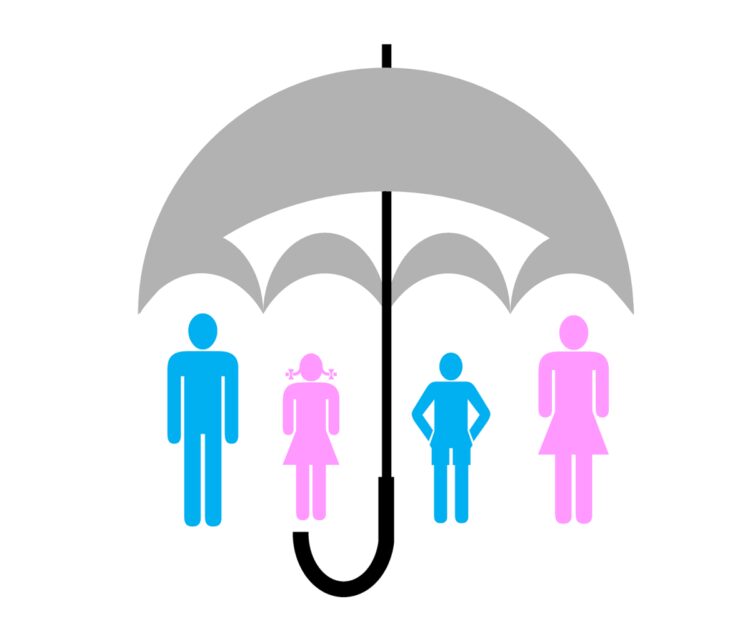
Life insurance is something that people are considering younger and younger these days; it’s an often-overlooked component of adult life that should be addressed whenever you experience a major life change, like getting married, having a baby or adopting. Although it is understandable to avoid thinking about your own death, it’s best to address the prospect from a tactical perspective. Consider the benefit that coverage has for your loved ones, not what it ultimately means for you.
Recent events have also caused people to reassess their own mortality; we cherish our health more, but we’re also more aware of how precious and fragile it truly is. Luckily, life insurance can be purchased online from the comfort of your own home. You can review coverage at any time, modify your policy, and continue to ensure you are taking the best possible care of your family no matter what happens. Here’s how to get started.
Understand Your Needs

There are many different types of life insurance, and the type of policy you choose will vary based on your age, income, and family size. You should consider not only how much you would like your family to receive but also how much you can afford to pay each month. In general, you should look for a coverage that can provide your recipients with your after-tax income until your children reach 18. This money can be put not only toward your funeral expenses but general living costs, education fees, etc.
Know Your Options
Your personal medical history will also influence the level of coverage you qualify for and the cost of your monthly premiums; those with pre-existing conditions, such as heart disease or cancer, may have greater difficulty getting approved from certain providers. They will always have to pay more for basic coverage than those who do not have any outstanding conditions. In the event you are diagnosed with a terminal illness, you may need to take out money to use prior to your passing.
In this case, you can look into a viatical settlement. This is the process of selling your life insurance to a third-party provider for a cash value. You can look up how much your policy is worth online in a matter of seconds for free with Mason Finance. It’s not pleasant to consider ever needing to reply upon these options, but it’s important to know they exist nonetheless. No matter what you’re facing, even if you are still in college, there are benefits to coverage and flexibility for any situation.
Compare Types of Life Insurance

Term life insurance is the most common and affordable; contracts are typically issued for 10, 20 or 30 years at a time with no payout if you pass away after that time. You can still cash out funds or borrow money after a certain period of time, but the amount will vary based on your insurer’s rules. There are also universal, whole and cash-value policies. Each one has its pros and cons, and it’s up to you to research each one in-depth prior to signing a contract. You can also learn about them directly through an independent broker; you should only buy insurance from an independent agent to ensure that you are given the most accurate information and fairest deal.
Sites like CaspianInsurance offers this type of term life insurance if you are interested in learning more.
Look at Different Providers Alone
Although an independent agent is your best route for signing legal contracts, you should investigate policies on your own, too. This allows you to research various terms and payments without any influence or pressure to make a decision on the spot. You’ll also be more informed and capable of having a more beneficial conversation with the agent you wind up working with, Providers often provide free quote tools on their site, but avoid providing contact information to every site you land on. this usually results in calls from agents who work for each company, and you’ll be forced to talk to each of them individually or be hounded for coverage until you sign with someone else.
Know the Terms

There is a lot of technical lingoes that you may not fully understand, even if you’ve had a contract for years. Reading up on them now helps you make the best choice for yourself and your family. Below you’ll find a brief list of the most common terms and their definitions.
- Beneficiary: Any recipient of a death benefit payout is called a beneficiary. They are specified by the policyholder and given a specified amount. Your provider will also perform an investigation to determine whether the proposed beneficiaries qualify for coverage based on their underwriting policies. If any of the projected beneficiaries do not meet the requirements, they will not be entitled to any payout after your death.
- Premium: Just like you pay auto insurance and health insurance premiums, you have to pay for life insurance coverage. You can arrange to pay per month or annually. The cost of your premium will vary based on your health, life expectancy, and any risk factors that could result in premature death, such as smoking, lifestyle habits, or occupational hazards. All of these will be taken into account along with your general physical health and wellness prior to issuing you a contract.
- Cash Value: This is how much your life insurance is worth in cash. Many people buy larger policies than they anticipate they’ll need in order to cash out on it later while they’re still alive. People may use these excess funds to pay for retirement, health care, or other expenses as they get older. If you want to explore different options for using your policy as a financial asset while you’re alive, then make sure you explore carefully. There are restrictions in place about how much and when a person can withdraw from their policy based on the provider’s individual guidelines.
- Riders: You can make changes to your policy through life insurance riders. These are able to be implemented for an additional fee, and each one serves a unique purpose. There are many types available that you may take advantage of in the future. You can choose to have additional coverage in the event of accidental death or be alleviated from making premiums if you become disabled or lose your income.











